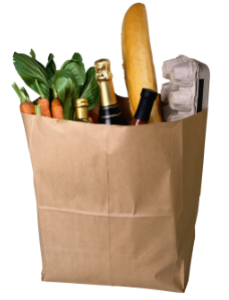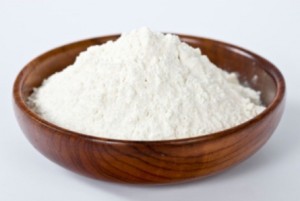In the old days, folks bought food fresh every day from a market in their neighborhood. And some just grew much of what they consumed in a backyard garden. A few chickens provided fresh eggs and sometimes, dinner!
Nowadays, with everyone’s busy schedules, sometime it’s a challenge just to get to the grocery store once a week. So making food last longer can save time and save money.
Get Fresh
Most urban areas have Farmers Markets, and they tend to especially be open on Saturdays and Sundays when many people are out grocery shopping. Google or check the yellow pages for Farmers Markets in the area to find one close to the grocery store. To save money, buy fresh fruit and vegetables there. Not only will the produce last longer since it will most likely be fresh from being plucked that very day, it will save money since prices there tend to be lower than the grocery store. It’s a win-win that saves money!
Berry It
Some people may be afraid to buy certain foods in bulk because they are afraid that food items, especially produce, will go bad. A lot of people use onions to cook, on hamburgers and sandwiches and even in salads. Here’s a little trick to store onions that will keep them fresh. Put them in panty hose. Push the first one all the way to the bottom of one of the legs in the hose, and then twist the hose into a knot. Now drop the next onion in on top and repeat. In addition to preserving the onions, it also looks kind of cool hanging in your closet!
In a bowl, pour some apple cider vinegar. For each tablespoon of vinegar, add 10 tablespoons of water. Pour into the bowl fresh strawberries or any other berries, such as raspberries or blue berries. Swish the berries around in the mixture, then drain the liquid, rinse the berries and store them in the refrigerator. The vinegar taste won’t be there since it was diluted with the water. And the berries will last at least a week, with the strawberries staying fresh even longer.
Some items shouldn’t be stored together. Potatoes and onions, for example, should be separated because they will absorb each other’s smell.
Remember that saying that was actually turned into a song… “One bad apple can’t spoil the whole bunch…” Well, it’s not true! One bad apple can spoil the whole bunch. To save money and keep those apples fresh longer, check each apple. Those overly ripe (soft) or bruised can contaminate the others. It’s best to buy fruit such as apples separately rather than in bags so that you can check each one.
Cool Stuff
Refrigerators were originally just designed to keep things cold so they wouldn’t spoil. Over time, the designs have changed and evolved to accommodate smart food storage to make food last longer and ultimately, save money. Here are tips to help keep items fresh in the refrigerator.
Store leftovers in plastic containers. Food tends to stay fresh longer and keep its flavor because it is protected from the smells of other items in the fridge. Plastic containers also protect food from moisture, which can cause mold.
However, old folks had it right when they used to “can” or store fruits and vegetables in mason jars. The produce lasts longer in glass as opposed to plastic containers or wrap.
Store milk and temperature sensitive items on shelf, not inside the door of the refrigerator. Temperature changes can impact longevity. Since the door opens a lot in the course of the day, it’s best to store milk on a shelf where the temp will be consistent.
Store items that drip, such as meat that is thawing out, on lower shelves so it doesn’t drip onto other items and soil and spoil them.
Don’t pack it in… air needs to circulate, so don’t over stuff your fridge.
Cut up items, such as meat, cheese, fruit and veggies, spoil faster when they are cut and open. Only cut these items as they are going to be used. Storing whole pieces will ensure the product lasts longer.
Think like a grocer… rotate items in your fridge so the things that need to get used or eaten faster are up front. This will also serve as a reminder of what leftovers are running out of time, too, as well as a clue as to what might be needed to be picked up on the next shopping trip.
Some things last longer if kept inside a refrigerator, while others last longer at room temperature… here is a list (courtesy of www.Buzzfeed.com) to give you an idea of what should be refrigerated and what can stand outside.
At room temps… avocados, apricots, bananas, citrus, garlic, kiwi, melons, nectarines, onions, pears, peaches, plums, pineapple, potatoes.
In the fridge… apples, beans, berries, broccoli, cabbage, celery, cherries, corn, cucumber, eggplant, ginger, grapes, jalapenos, leafy greens, mushrooms, zucchini.
Egging You On
Don’t store eggs in the door of the refrigerator! Keeping them cooler by storing them inside on a shelf will make them last longer. Remember, the door gets opened and closed all day… the temperature stays cooler most consistently inside on a shelf.
Stale bread? Save it by rubbing an ice cube over the top, then baking for 10 minutes… it’s as good as new!
These ways to make food last longer may seem like a lot to remember. But once they are applied on a regular basis, it will all come second nature to the shopper motivated to save money.







